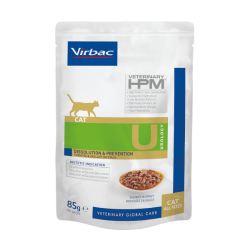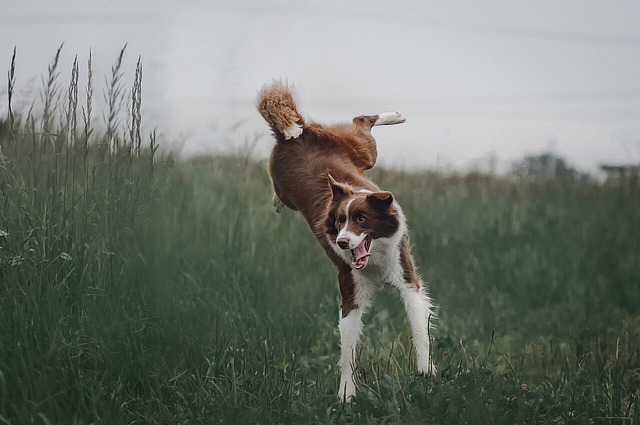
It is important to make the right choice when choosing a dog. There are many types of dogs. The right dog for you will depend on many factors. Breeds come in a variety of sizes, personalities, and grooming requirements. Before making any final decisions, make sure you consult a licensed veterinarian. These are some breeds you should consider if your first dog owner is not yet licensed.
Golden Retrievers
When you first get a Golden Retriever, it is important to be patient with them. They are protective of their family and have a strong instinct to protect their owners. They are very gentle with children. If toys are not removed, they will take them. This doesn't mean they shouldn't be taken care of for extended periods.
If you're looking for a first dog, an adult or senior golden retriever is a good choice. These dogs are no longer prone to the puppy-like behavior they used to have, but they still require daily walks. These dogs are also less active than their younger counterparts. Senior goldens are an ideal choice if your dog is easy to care for.
Even though Goldens don’t require any training, they are quick to learn basic obedience training. Once trained properly, they'll know the names of things and put their toys away. However, they can take a while to become emotionally mature, with most achieving emotional maturity around two to three years of age. These dogs may want to have fun and play, despite their intelligence.
Cavaliers
Cavaliers are one of the best dogs for first-time owners due to their gentle and affectionate nature. They are easy to train and require little exercise. They also have a lot of friends. They are also very sweet and require very little grooming. Find out why Cavaliers are the best dog for your first time owner.

Cavaliers are lap dogs and can suffer from heart disease. Cavaliers are good with children and are social dogs. They are a good choice for families with kids. They are also one among the most economical breeds, making them great for first-time homeowners.
Cavaliers are not only cute, they are intelligent and very energetic. They can grow to a relatively large size, but they do not shed as much as larger breeds. If you're new to pet ownership, the Cavalier King Charles Spaniel is a good choice. This breed is perfect for small apartments as it can live up to 18 pounds.
Bichon Frise
Bichon frises, small and energetic dogs, are called bichon frises. They can get along with other pets and children well. They are easy and quick to train. They need to be exercised daily with a good grooming schedule. Bichons have curly, short coats, so they will need occasional brushing.

Bichon frises have been deemed hypoallergenic. Their high level of shed skin means you need to attend frequent grooming appointments, and be in constant contact with your groomer. It is important to remove shed hair every day or it could get trapped under the skin, causing painful mats.
Bichon puppies love to be loved and cared for. Before bringing your pet home, make sure you spay or neuter them.
FAQ
How long can a dog be kept indoors?
Dogs are curious by nature. They need to have an outlet for this curiosity. If they don't have a place to go, they can be destructive. This can lead to many problems including property destruction and injury to others.
Dogs should always be kept on a leash when outside. The leash keeps them from getting into trouble while allowing them to explore their environment safely.
He will be bored and uninterested if you keep him indoors all day. He will begin to chew furniture and other things. His nails may grow too long, which could lead to health issues.
It is best to allow your dog to run free at least one day per week to avoid these unfortunate consequences. Take him for a walk around the neighborhood, go for a ride in the car, or take him to the park.
This will allow him to burn energy and give him something useful.
What are the things you should consider when buying a pet?
It is important to decide what kind of lifestyle and activities you would like for your family. Do you have children? What number do you have? What age are they now? Are there any dietary restrictions?
Are you allergic to anything? Is there anything else you need to know about your pet?
Once you've answered these questions, think about whether you're looking for an active companion, a quiet lap dog, a house-trained cat, or perhaps a fish tank full of tropical fish.
Adopting a puppy is a great idea. Make sure to visit a rescue or shelter group so you can get to know the animals and feel at ease with them.
You'll also want to know if the animal has been vaccinated against rabies and other diseases.
The owner should also be asked if the animal will be taken care of while you're away. This will make it so you don't have worry about leaving your pet home.
Pets are part of the family. You shouldn't adopt a pet unless it is a good fit for you!
What should you do if your dog bites someone else?
If an animal attacks you, it is important to first make sure it isn't rabid. If that is impossible, call for help. Do not attempt your own rescue, as you might be seriously injured.
If the animal bites but isn't aggressive, take it to a veterinarian. Your vet will inspect the animal and recommend any further treatment.
Most cases will require rabies shots. These should never be administered by you. Only a qualified person should administer these.
Statistics
- Reimbursement rates vary by insurer, but common rates range from 60% to 100% of your veterinary bill. (usnews.com)
- For example, if your policy has a 90% reimbursement rate and you've already met your deductible, your insurer would pay you 90% of the amount you paid the vet, as long as you're still below the coverage limits of your policy. (usnews.com)
- Here's a sobering reality: when you add up vaccinations, health exams, heartworm medications, litter, collars and leashes, food, and grooming, you can expect a bill of at least $1,000 a year, according to SSPCA. (bustle.com)
- In fact, according to ASPCA, first-year expenses can sum up to nearly $2,000. (petplay.com)
- It is estimated that the average cost per year of owning a cat or dog is about $1,000. (sspca.org)
External Links
How To
How to train your dog
A pet dog is an animal companion that provides emotional support and companionship to its owner. It may provide protection against predators and protect other animals.
A pet dog must be trained by its owners to perform certain tasks such as fetching items, guarding against intruders, obeying commands, and performing tricks.
The average time for training is between six months to two years. The owner teaches basic obedience skills to the dog, including sitting, lying down, staying, coming when called, walking on command, and rolling over. The owner teaches the dog basic commands and how to manage his natural instincts.
The owner should also teach the dog to behave appropriately in unfamiliar situations and not bite other animals.